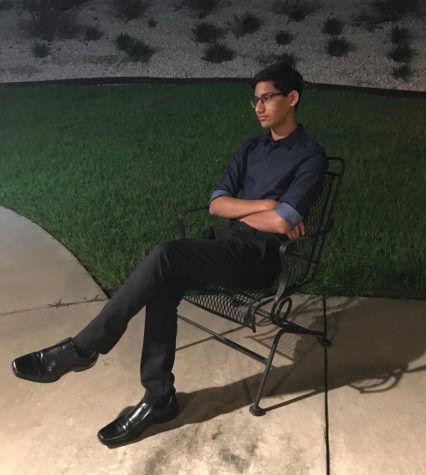The Screenagers Debate: Pro and Con
Cheesy? Sure. But documentary made valid points

The “Screenagers’ documentary shown to students earlier this semester received mixed reviews, but most were negative. However, I believe everyone could learn a thing or two from it.
Most people are intent on shrugging it off, but “Screenagers” had some valid points. While the acting might’ve been cheesy at some points, it’s the message that matters.
One example is the young man who had to drop out of college because he was addicted to video games. While I definitely enjoy video games every now and then, I think there is a limit to how much you should be playing. He had stayed up for consecutive nights playing, and it wasn’t during a break or when he had time to waste. It was at the point where he was skipping class and homework assignments, and he was so sleep deprived he couldn’t have been there if he had wanted to be.
He even had to end up going to rehab, which you wouldn’t expect from something as simple as playing video games. I didn’t know there was such a thing as electronics rehab. I think a healthy balance between playing video games non-stop and actually participating in school is to only play during the weekends when you have finished all your work. Even then, you should try to stop yourself if you find yourself playing for hours and hours on end. Switch things up by going outside to play instead of just sitting on one thing for the whole day.
The addiction part is only one spectrum of video game overuse. The other is when you become violent and even resistive. Take, for example, the middle schooler boy who would get violent when told to stop playing video games by his grandmother. He would throw his controller around, throw temper tantrums, and was overall in need of some help. He eventually learned to control himself and focus more on school, which was a much needed change. I have gotten frustrated when playing video games, but never as violent. I think that if you find yourself getting so stressed out over a video game that you are in a bad mood, you should just give it a rest. You can always come back later when you’ve calmed down.
Arguably, the most important part of Screenagers was the segment on phone and social media usage. The main character’s daughter from the film was intent on getting her own phone, and when she did, was instantly hooked to it. Phones/electronics are a great tool for learning, but when you get addicted to them it’s no good. Strike a balance between overuse and completely banning it altogether.
Just know when to put away your phone. When in a social setting where you don’t know anyone or are getting to know somebody, you should keep your phone away unless it is immediately necessary. You don’t set a good impression by immediate whipping out your phone when meeting someone for the first time. Sure, sometimes glueing your eyes to your phone can avoid an awkward interaction, but don’t overdo it.
It’s not just phone overuse that’s the problem, another is cyber bullying. You cannot always control what goes on on social media, and everything you say on there will stay there forever. It is important to watch yourself and to not say or do anything that you will regret later on. For example, there was one young girl from the film who thought that sharing intimate photos with her boyfriend would be safe, but they were instead circulated throughout the entire school. One good rule to keep in mind when on social media is to not say anything on there that you wouldn’t say to your grandparents. Sure, it may go without saying, but some people don’t have the common sense to abide by it.
Hopefully, by paying attention to social media use and watching our electronic intake, we will be less likely to do something that will come back to haunt us later on.
Stop fighting technology and embrace it to better our lives

This is a topic that needs to be addressed because kids today do spend too much time on their phones instead of talking to their peers.
However, the “Screenagers” showing made many students see it as more of a joke than a serious learning documentary. The way many of the actors spoke made it seem as if the whole movie was scripted, which made it seem like an untrue story.
The mother and father in “Screenagers” gave their daughter a contract stating the rules of her phone usage. This is not an effective way of enforcing rules. By presenting these rules so soon, it makes a child feel like their parents have no trust in them. This particular daughter might have stayed off of her phone enough, put it away at night, or even turned it off occasionally on her own.
By her parents assuming she wasn’t going to, it makes trust levels go down significantly. The child should not be punished for her phone until she messes up. Some parents assume the worst in their kids. Why don’t they make a movie to teach parents to trust before enforcing?
In today’s society, children having phones is inevitable. This is the way people communicate. The key to addressing this is not cutting us off from them completely, but limiting our usage.
One Stratford student said the film made some good points, but the way it was delivered was almost comical because it seemed fake.. This will make kids realize their life does not revolve around technology, thus letting them make the decision they don’t want to be on it. The more parents enforce not using phones, the more students will want to use them.
A speaker who had found a happy balance between the two would have been more beneficial than a scripted movie. Students connect more when there is a real person standing in front of them, not a video. I believe Stratford was trying to teach students the world does not revolve around our technology, yet they showed us a video instead of a real person.
Texting is a modern language. Just as English has modernized with every generation, this is how we chose ours to be. Our children will probably use something completely different, but that’s just the way it goes.
Technology will never stop improving, so it’s time to stop fighting it and learn how to use it to better our daily lives. Technology usage is something that can be controlled just like any other cool toy. The key is to control it in a way that works for everyone.


Zeraiz Shabbir is a sophomore and in his first year on the staff of The Gazebo. His favorite subjects are Accelerated Chemistry and AP World History. His...

GRADE: Senior
YEARS ON GAZEBO: Fourth year
MY FAVORITE THINGS: Netflix, my friends, horses, my sisters, and cooking
SIX-WORD MEMOIR: Hanging...







